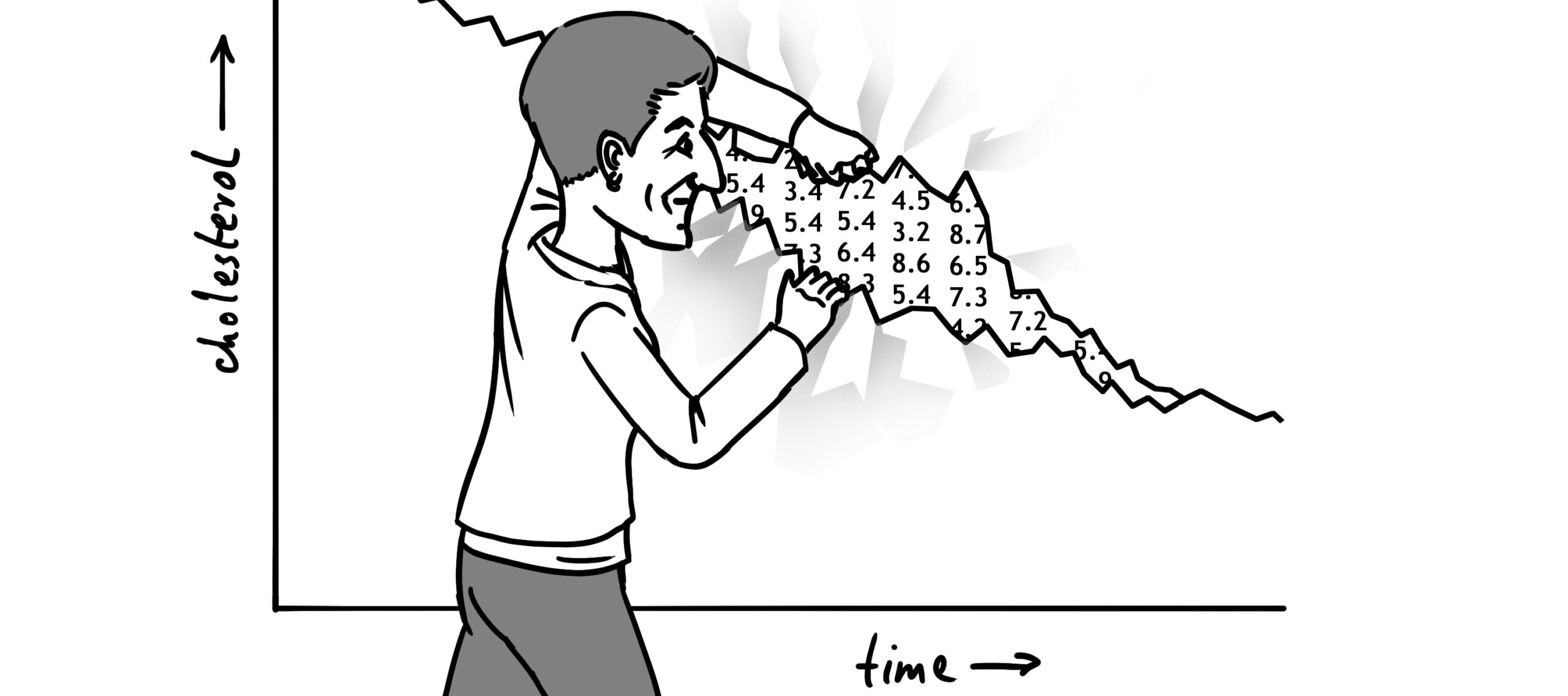A botched experiment, a rejected paper: such things are soon labelled as failures in academia. As for talking about them – not done! But that is just what WUR scientists do in this column. Because failure has its uses. This time, we hear from Nicole de Roos, Assistant Professor of Nutrition and Disease.
‘After I graduated, I worked on various projects in the Human Nutrition department at Wageningen as a research assistant. One of them was about cholesterol-lowering yoghurt that a company had launched on the market. The company had already had research done in America, but wanted evidence from the Netherlands as well that the product lowered cholesterol. This was partly for PR purposes.
‘My supervisor and I designed a study with nearly 80 test subjects. Half of them ate the cholesterol-lowering yoghurt every day, and the other half ate regular yoghurt. After two months we had the final results: we saw no difference in the cholesterol levels of the two groups.’
I thought: there goes a year of my life down the drain because we weren’t alert enough
‘Disappointed, I told my contacts at the company about the results. They were dismayed and concluded that the study was a failure. But we had built in all sorts of quality controls. For example, we could show from blood values that the participants had faithfully eaten their yoghurt. One of my colleagues delved into the raw data for the American study and analysed it afresh. And what was the case? The original study contained an error in the statistical analysis: their study didn’t show a reduction in the cholesterol among test subjects either. I thought: there goes a year of my life down the drain because we weren’t alert enough.
‘I had read the study beforehand too, but the error was in the calculations that the reader doesn’t see. That was an important lesson. Scientific research is largely based on trust, but it is important to keep a critical eye on earlier research and to check raw data – both in published research and your own data. I tell my students that now too. I always emphasize that several people should do the same calculations and check whether they get the same outcomes. Because it’s so easy to make a mistake and that can cost a lot of time and money – as I learned from the yoghurt debacle.’

 Illustration Stijn Schreven
Illustration Stijn Schreven 

